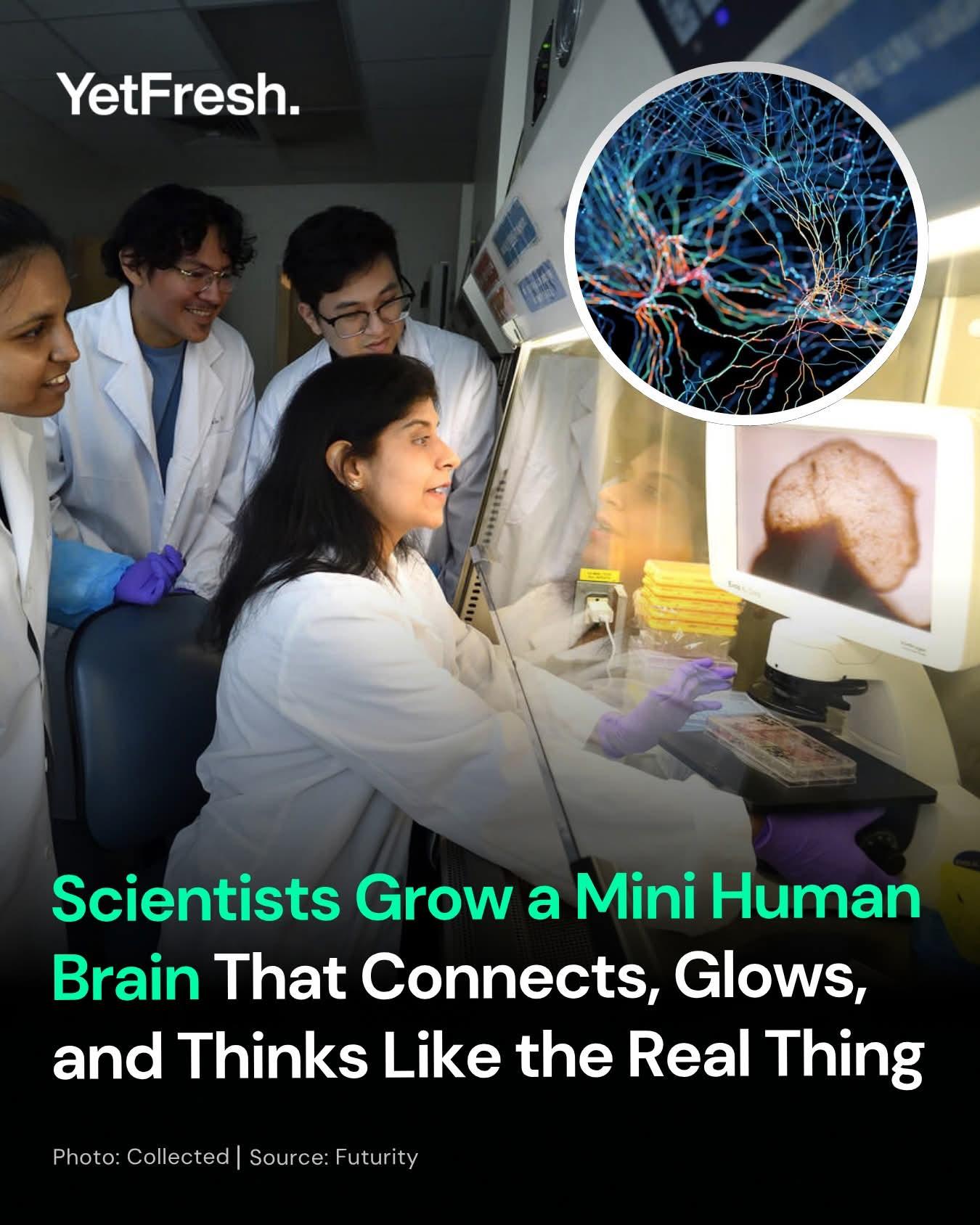-
Portefeuille
-
Explore Our Features
-
Marketplace
-
Pages
-
Groupes
-
Reels
-
Gossip
-
Blogs
-
Evènements
-
Blogs
-
 Ai and Tools
Ai and Tools
-
Donation
-
Emplois
-
Courses
-
Jeux
-
Feed
Scientists Grow a mini Human Bring That Connects,Glows And Thinks Like The Real Thing

Tiny Lab-Grown Brain Could Change Neuroscience
Here’s everything you need to know:
→ Johns Hopkins researchers built a “whole-brain” mini organoid (MRBO) that combines multiple brain regions with rudimentary blood vessels, allowing the tissues to connect and fire together like a network.
→ The mini brain shows activity similar to a 40-day-old human fetal brain and contains about 6–7 million neurons, offering a human cell-based model that’s far closer to real development than typical single-region organoids.
→ Scientists fused separately grown brain-region tissues and early blood-vessel cells using sticky proteins as a biological “superglue,” which enabled inter-region connections and electrical signaling.
→ The platform is designed to study whole-brain disorders—like autism, schizophrenia, and Alzheimer’s—and to test drugs in a system that may better predict human outcomes than animal models.
→ Lead author Annie Kathuria called it “the next generation of brain organoids,” emphasizing that diseases affect the whole brain, and the MRBO lets teams watch disorders develop and evaluate treatments in real time.
→ Official: Findings are published in the journal Advanced Science, with institutional confirmation from Johns Hopkins University; no contradictory statements from regulators or ethics bodies were noted.


